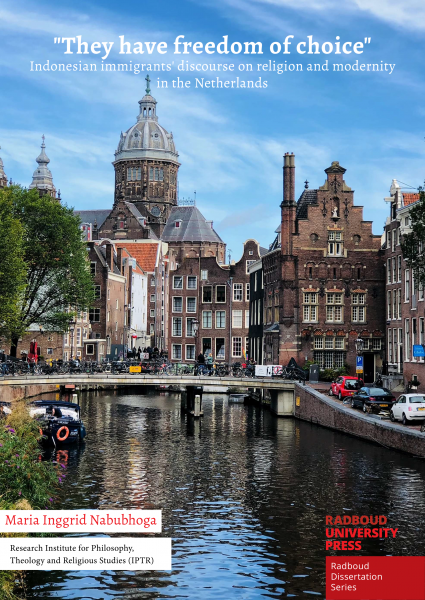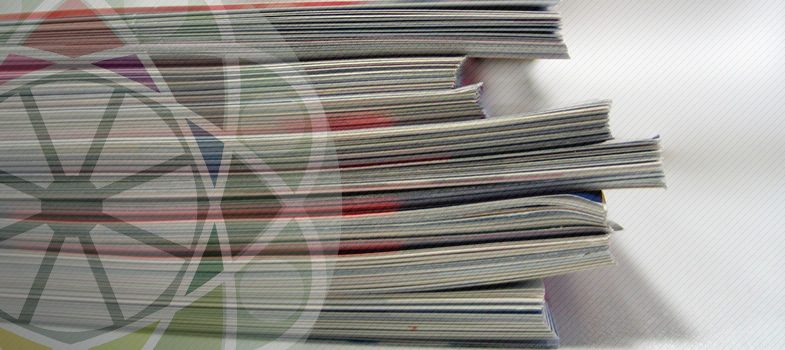“They have freedom of choice”
Indonesian immigrants’ discourse on religion and modernity in the Netherlands
Maria Inggrid Nabubhoga
 In the Dutch debate on religion in the public arena, Indonesian immigrants tend to be neglected, as the debate tends to concentrate on Muslim immigrants, particularly from Morocco and Turkey. This study examines the discourse of Indonesian immigrants about religion and modernity in the Netherlands. Indonesian immigrants in the Netherlands share a colonial history with Dutch society, yet they are neglected in the debates of religion in the public arena in the Netherlands. This study aims to contribute to the theories of modernity in the light of non-Western immigrants from a post-colonial perspective.
In the Dutch debate on religion in the public arena, Indonesian immigrants tend to be neglected, as the debate tends to concentrate on Muslim immigrants, particularly from Morocco and Turkey. This study examines the discourse of Indonesian immigrants about religion and modernity in the Netherlands. Indonesian immigrants in the Netherlands share a colonial history with Dutch society, yet they are neglected in the debates of religion in the public arena in the Netherlands. This study aims to contribute to the theories of modernity in the light of non-Western immigrants from a post-colonial perspective.
The main question to be answered in this research is: Does the notion of modernity in the light of non-Western immigrants need a revision? This research uses Critical Discourse Analysis (CDA) developed by Norman Fairclough (1992) as a method to analyse the data. The study found that the notion of modernity in the context of multiple modernities needs revision because, according to Indonesian immigrants’ perception, European modernity is not as secular as Europeans themselves claimed. It is not secular Europe versus the religious rest of the world. It is the blurry boundaries of religious-secular division in Europe, in this case, the Netherlands. Therefore, this study proposed to look at it from different theoretical perspectives, namely the theories of liquid modernity (Bauman, 2000) and trans-modernity (Dussel, 2012) which are helpful to further discern the findings of the study.
This study is part of NICMCR’s (Consortium) project “Indonesian Mirrors”, which aims to study multiple modernities and religions in the public arena in the Netherlands and Indonesia. The underlying conviction is that insight into colonial history and Netherlands-Indonesia bilateral relations can help grapple with religious issues in both societies, particularly concerning the contestation of modernity. In the last chapter, the study reflects on how insights gained in this research implicate the dialogue between the Netherlands and Indonesia, especially in the context of the Consortium. The concept of religion that Indonesian immigrants know from Indonesia is the concept of religion that was constructed by the Dutch during the colonial era. It serves as a boomerang. This concept of religion is no longer taken for granted in the Netherlands, and it is also increasingly contested in Indonesia. Thus, the underlying question is not only what modernity is, but also what religion is. What religion are we talking about?
Maria Inggrid Nabubhoga defended this dissertation on January 23 2024 at the aula of Radboud University Nijmegen. This dissertation is published by Radboud University Press and can be accessed here.
Dissertation Nabubhoga